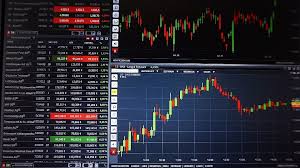
Forex trading can be an exciting and potentially lucrative endeavor, but it also comes with its fair share of responsibilities, especially when it comes to taxes. Understanding how forex trading taxes work is crucial for traders who want to maximize their profits while staying compliant with tax regulations. In this article, we’ll break down the essential aspects of forex trading taxes, the differences in tax treatment across various countries, and tips for effective tax management. If you’re looking for brokers to facilitate your trading, consider checking out forex trading taxes Hong Kong Brokers, which can offer supportive services for your trading journey.
1. The Basics of Forex Trading Taxes
Forex trading, like any other form of investment, can lead to capital gains or losses which are subject to taxation. However, the specific tax implications can vary significantly depending on your country of residence and where your trading accounts are based. In general, forex traders need to be aware of how their trades are classified for tax purposes—whether as ordinary income or capital gains.
1.1 Capital Gains vs. Ordinary Income
In many jurisdictions, profits from forex trading are considered capital gains, which are typically taxed at a lower rate than ordinary income. For example, in the United States, long-term capital gains (for assets held for more than a year) may be taxed at rates ranging from 0% to 20%, depending on your income level. On the other hand, short-term capital gains are taxed as ordinary income, which can be as high as 37% for high-income earners.
1.2 Tax Treatment of Forex Losses
Forex losses can also be significant. In many cases, traders can use their losses to offset gains from other investments, thus reducing their overall tax liability. It’s important to keep accurate records of all trades, including dates, amounts, and the resulting profits or losses, to substantiate your claims when you file your taxes.
2. Different Tax Regulations by Country
As mentioned earlier, tax treatment for forex trading can vary dramatically from one country to another. Below is an overview of how forex trading is taxed in a few key markets.
2.1 United States
In the U.S., forex trading profits can be classified under two main tax methods: 60/40 and mark-to-market. The 60/40 method entails 60% of the gains being considered long-term capital gains and 40% as short-term, regardless of the actual holding period. The mark-to-market method allows traders to treat all gains and losses as ordinary income, simplifying reporting but potentially increasing tax liability.

2.2 United Kingdom
In the UK, forex trading is generally viewed under capital gains tax rules. Profits made from trading are subject to capital gains tax, which is only applied once your total gains exceed the annual exempt amount (which limits how much you can earn without paying taxes). However, if trading is your primary source of income, HMRC may classify it as income, subjecting you to income tax rates.
2.3 Australia
In Australia, forex trading is usually treated as ordinary income, meaning all profits are taxed at the individual’s income tax rate. However, if you qualify as a ‘wholesaler,’ you may have different obligations. As per Australian regulations, it’s essential to retain detailed records to ensure compliance with the Australian Taxation Office (ATO).
3. How to Report Forex Trading Taxes
Accurate reporting of your forex trading taxes is critical. Here are some steps to help you navigate the process:
3.1 Keep Detailed Records
The foundation of any successful tax strategy is meticulous record-keeping. Ensure that you document every trade, including the date, currency pair, entry and exit points, and the profits or losses incurred. Many platforms offer reports that can simplify this process.
3.2 Use Accounting Software
Invest in reliable accounting software or tax preparation tools that can help you to categorize your trades correctly and calculate your gains or losses efficiently. Some popular options are QuickBooks, Xero, or specific trading and tax software that specializes in forex.
3.3 Consult a Tax Professional

Given the complexities involved in tax compliance, it’s often wise to consult with a tax professional who has experience in forex trading. They can provide tailored advice based on your individual circumstances and help ensure that your filings are accurate and complete.
4. Tips for Minimizing Tax Liability
While it is essential to comply with tax laws, there are strategies that traders can employ to minimize their tax liabilities legally:
4.1 Timing Your Trades
The timing of your trades can have a significant impact on your tax bill. By managing when you realize gains or losses, you may be able to take advantage of lower tax rates associated with long-term capital gains.
4.2 Offset Gains with Losses
Utilize any trading losses to offset your capital gains. This is a common strategy that traders can use to lower their taxable income. For instance, if you have $10,000 in gains but also realized $3,000 in losses, you could only pay capital gains taxes on $7,000.
4.3 Utilize Tax-Advantaged Accounts
Some individuals consider trading within tax-advantaged accounts, such as IRAs in the U.S., to defer taxes on their gains. Consult with a financial advisor to understand whether this strategy aligns with your trading goals.
Conclusion
Forex trading can be a rewarding venture, but it’s crucial to stay informed about tax obligations. Each country has its own rules regarding how forex trading is taxed, and failing to understand these can lead to costly mistakes. By keeping detailed records, consulting with professionals, and employing strategies to minimize tax liability, you can focus more on trading and less on taxes. Remember, proactive tax management not only helps you comply with the law but also maximizes your net trading profits.
